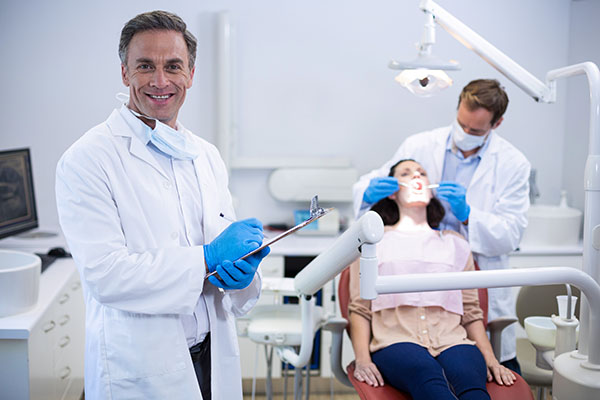What to Expect After Undergoing Oral Surgery

Many patients feel anxious when they are days away from oral surgery, and it can be helpful to have more information about the process. Of course, oral surgery patients are placed under an anesthetic, so they are not going to feel anything during the procedure. Subsequently, many of the anxieties stem from what is expected after undergoing oral surgery.
How to recover from oral surgery
By gaining a complete understanding of what the recovery process is like after oral surgery, one can go into your oral surgery procedure confident, knowing they are prepared for what awaits after the surgery. The following is a complete overview of how to recover from oral surgery, including how to care for oral health, what to eat and how to manage any discomfort.
Practice good oral health
The risk of oral infection is often greater after oral surgery, and it is important to practice good oral hygiene to prevent any complications from developing. However, caring for teeth and gums is more difficult after oral surgery as the mouth is likely to be sore and it is important not to aggravate the affected area. Subsequently, be sure to brush gently, utilize mouthwash and consult with your dentist about any care techniques that are needed during recovery.
Dietary restrictions
One of the more frustrating issues patients deal with for the first few weeks after oral surgery is dietary limitations, and oral surgery often requires patients to alter the way they eat. It is encouraged to avoid hard foods that require a lot of chewing during recovery and to instead stick mainly to soft foods that are easy to eat. Also, limit the intake of any food types that increase the risk of oral infection, such as foods high in sugar and carbonated beverages.
Pain management
There is likely to be some discomfort during the recovery process, but the pain can be kept at a tolerable level through proper pain management. Be sure to consult with your dentist about what over-the-counter pain reliever is acceptable to take and what should be avoided. Also, in many instances, the key to pain management is to avoid irritating the affected area, which might include taking extra precaution to avoid tooth damage and avoiding foods that are harder to chew.
Follow-up visits
The treatment process is not complete after oral surgery, and most dentists require patients to come in for follow-up visits to ensure good oral health is maintained and the purpose of the oral surgery is accomplished. Patients should consult with their dentist about how often to come in for follow-up visits and make time to do so.
Talk to a dentist about oral surgery
Whether you are considering dental implant placement or have a tooth infection and fear you might be in need of a root canal, oral surgery is often necessary to achieve our cosmetic and oral health goals. If you are interested in learning more about oral surgery and the recovery process, consult us today.
Are you considering oral surgery in the Colleyville area? Get more oral surgery information at https://dentalstudiocolleyville.com.
Check out what others are saying about our services on Yelp: Read our Yelp reviews.
Recent Posts
Oral surgery is sometimes necessary to correct issues that are beyond treatment from basic restorative or preventive care. A general dentist trained in oral surgery can often provide a variety of in-office procedures, offering both convenience and continuity of care. These treatments are performed in a comfortable setting, and they support long-term oral health, improve…
Oral surgery is a branch of dental care that offers a wide range of procedures designed to address conditions and issues affecting the mouth, teeth, and jaw. These procedures can help maintain oral health and address complex dental problems. Understanding the different approaches to oral surgery can help patients make informed decisions about their treatment…
Oral surgery is an invasive procedure. A dentist will recommend this procedure if the damage is severe and correction must happen right away. This surgery may be an aggressive solution to a dental issue, but your dentist will not suggest it unless your comfort or health relies on it. If you want to know why…
The idea of oral surgery can be intimidating, especially when your dentist recommends it. It is easy to understand the extra layer of anxiety that happens when the dentist goes on to refer you to a specialist.As you picture an unfamiliar person coming at your mouth with sharp instruments, you ask yourself: Do you really…


